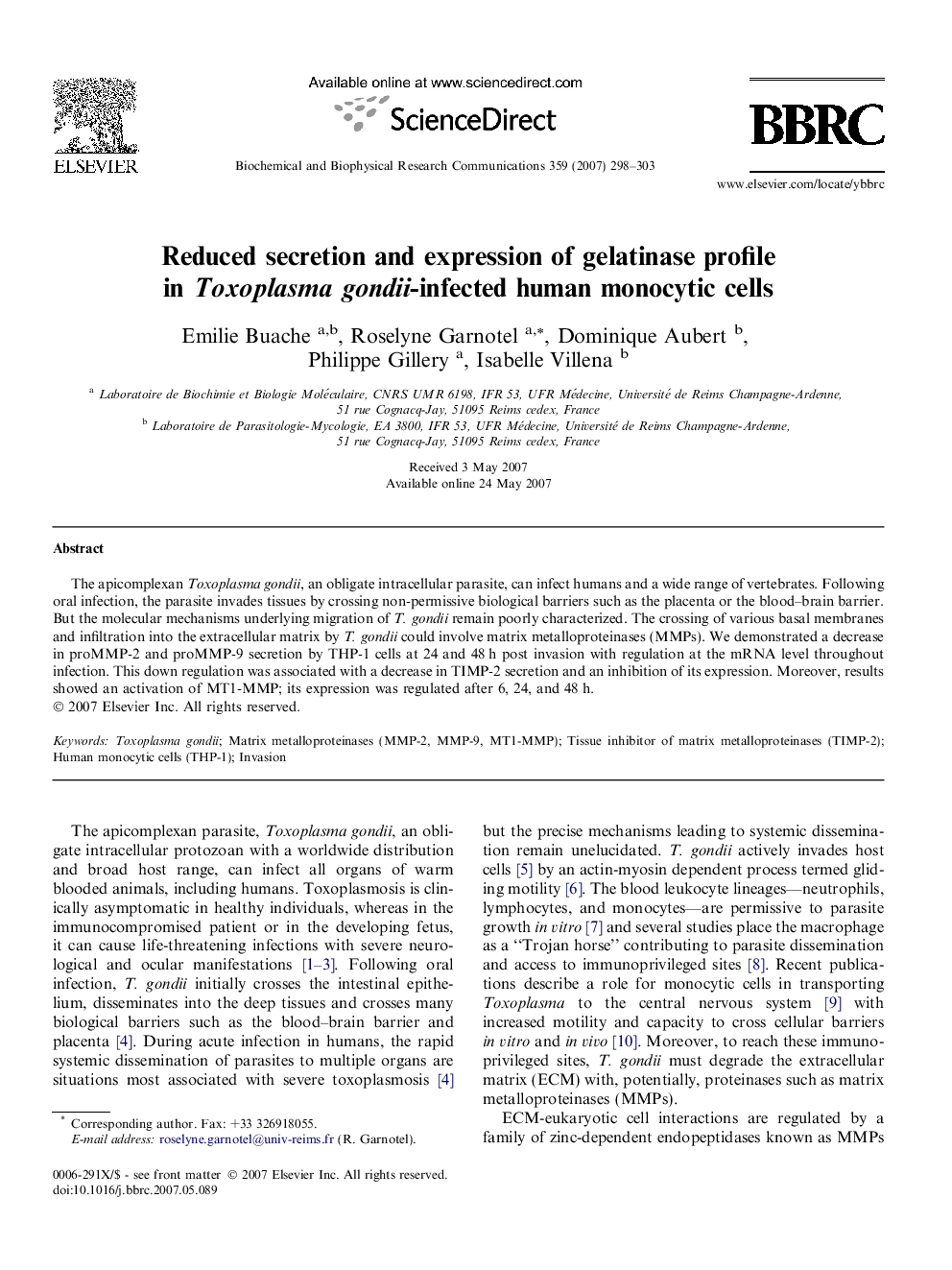| Article ID | Journal | Published Year | Pages | File Type |
|---|---|---|---|---|
| 1937339 | Biochemical and Biophysical Research Communications | 2007 | 6 Pages |
The apicomplexan Toxoplasma gondii, an obligate intracellular parasite, can infect humans and a wide range of vertebrates. Following oral infection, the parasite invades tissues by crossing non-permissive biological barriers such as the placenta or the blood–brain barrier. But the molecular mechanisms underlying migration of T. gondii remain poorly characterized. The crossing of various basal membranes and infiltration into the extracellular matrix by T. gondii could involve matrix metalloproteinases (MMPs). We demonstrated a decrease in proMMP-2 and proMMP-9 secretion by THP-1 cells at 24 and 48 h post invasion with regulation at the mRNA level throughout infection. This down regulation was associated with a decrease in TIMP-2 secretion and an inhibition of its expression. Moreover, results showed an activation of MT1-MMP; its expression was regulated after 6, 24, and 48 h.
